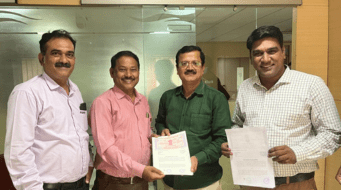by Rajmohan Sudhakar

“Madame, is this disease going to be here forever?”
“How are we going to conduct our trainings when we cannot gather? Like this, on Zoom?”
“We have been going door-to-door asking people to use sanitiser, soap and mask. Some still don’t use them. What should we do?”
“People go to nearby villages and towns to get groceries, vegetables and meat. We could come in contact with infected individuals. How can we identify them?”
—
These were some questions raised by anxious villagers of Maharashtra in the six online workshops on COVID-19 organised in the state by WOTR over the past one week. Virtual workshops were also organised in Telangana, Madhya Pradesh, Rajasthan, Jharkhand, Odisha and Chhattisgarh, taking the total number of such online sessions to 14.
Over 1,300 participants from 294 villages of the seven states came together for the online interactive workshops to express their concerns as WOTR staff provided crucial tips on how to deal with COVID-19, returning migrants, and the importance of keeping the villages in the COVID-19 Green Zone.
85 sarpanchs, 227 gram panchayat members (163 males and 64 females), 241 Village Development Committee (VDC) members (169 males and 72 females), 91 SMS members, 176 health committee members (46 males and 130 females), 158 Wasundhara sevaks and 98 Wasundhara sevikas/Mahila pravartaks, 11 anganwadi workers, 55 ASHA workers, 22 government representatives, 92 other active villagers and 87 WOTR employees were part of the virtual sessions.
Maharashtra / Action sought against those fleeing quarantine
In Maharashtra, 700-odd participants from various districts attended the workshops through 535 mobile devices/laptops — from the blocks of Sangamner, Gangapur, Ambajogai, Karjat, Khalapur, Shrigonda, Bhiwandi, Jafrabad, Ambad, Pathardi, Parner and Bhokardan.
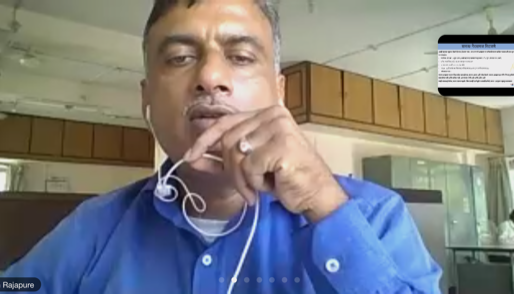
Quarantine facilities were arranged for returning migrants in schools and other public buildings. Some were home quarantined whenever facilities were inadequate. Lone girls/women were home-quarantined as well.
Food for migrant returnees in quarantine were either borne by gram panchayats/Self Help Groups (SHGs)/Community-based Organisations (CBOs) or their own families. Village Suraksha Samitis were formed comprising sarpanchs, talatis, village members, ASHA workers, anganwadi staff and Gram sevaks along with WOTR’s Wasundhara sevikas/sevaks.
Registers of the migrant returnees are maintained by WOTR and other civic bodies.
“Our fear of the virus has reduced. We gained some insights that we can now share,” said Dipak Takle, a gram panchayat member.
“Unlike cities, where strict measures are in place, people politicise the issue here when we talk of quarantining returnees. Hence, we need active police intervention,” said the Deshgavhan sarpanch.
Police action was sought against some migrant returnees who were violating quarantine, at times fleeing, staying in for the day and skipping at night.
Subhash Chindhe from Sangamner sought WOTR’s intervention as migrant returnees were seeking work. In Sangamner, most farmers were hesitant to hire labour as they worked on their own.
According to Navnath Badhe from Sangamner, farmers were concerned about going outside their village to sell produce, while purchasing seeds and fertilisers for kharif.
An ASHA worker took timely action, sending a migrant returnee to quarantine despite much resistance. Later, the person in question tested positive.
‘Arsenic-Album-30’, a homeopathic drug was distributed by Gunjal Hospital, Chandapuri Ghat in Sangamner. Some believed the medicine is effective in treating the virus. WOTR staff explained that this is uncertain till proved.
In one of the sessions, Dr Rajesh Bhangade explained how the coronavirus spreads and what precautions to take if one is involved in MNREGA work.
Madhya Pradesh / Do livestock contract coronavirus?
In Madhya Pradesh, WOTR conducted three workshops in Chhindwara, Mandla and Seoni.
Kanta from Devanala Mal requested WOTR to organise more awareness sessions on COVID-19, as the villagers only know what was shown on TV or by word-of-mouth and are confused.
“We are now constructing bunds under MNREGA. The farmers are getting their fields ready for kharif. However, watershed activities are discontinued for now,” said a woman from Rajdongri.
SHG meetings here have minimal participation (5-6 members) and proper physical distancing is maintained.
A sarpanch raised the issue of open sewers. “What if a returnee in quarantine takes bath and that water flows into the drain? Will it be infectious?”
Villagers were curious whether livestock could contract COVID-19. WOTR’s Romit Banerjee suggested involving veterinarians in future workshops so that such doubts can be cleared.
In Mandla, Mahesh, who is currently in quarantine, joined the workshop from the village of Malthar. “I went to Gujarat as a labourer. On my return, I informed the village officials who asked me to go into quarantine in the village school for 14 days. Food was provided by my family. For bathing, I go to the nearby river. I have not experienced any discrimination,” he said.
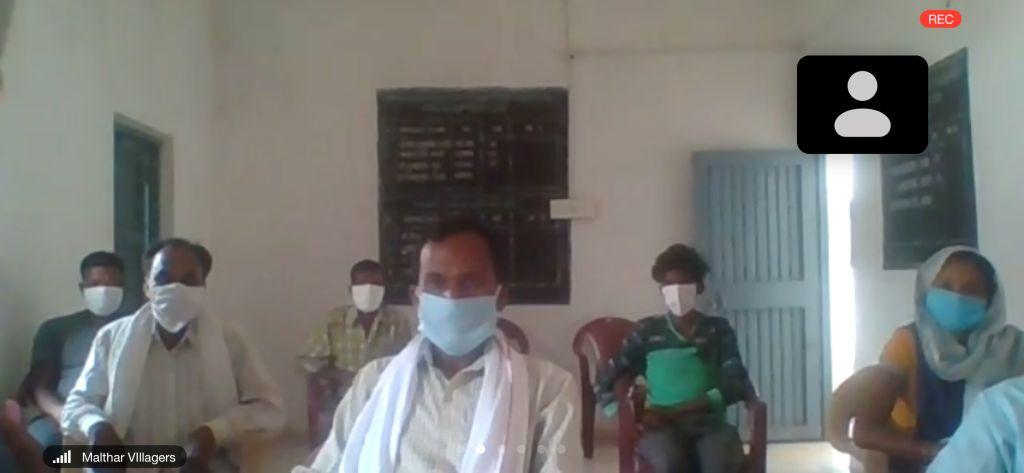
In Malthar, Banar and Dargaon, MNREGA activities are underway, Tendupatta collection is on, watershed activities are yet to begin, and the fields are being prepared for kharif.
Nagesh, the Sarpanch of Bichhuamal, mentioned when the news of the virus spread, they counted 52 villagers who had migrated to different cities. Village officials were informed thereafter. According to Nagesh, MNREGA works with 40-odd labourers on site are ongoing. “Whenever individuals with symptoms are found, a toll-free number is provided for further guidance,” the sarpanch added.
The sarpanch of Darasikhurd summed it up: “Now the situation is Desh Bachao, Gaon Bachao aur Khud Ko Bachao”.
Jharkhand / WOTR facilitating return of stranded
In Jharkhand’s Indipidi gram panchayat migrant returnees are in quarantine at district-level facilities. Gram panchayats like Indipidi include 10-15 villages and returnees are registered at the GP-level. The ones who are released from quarantine are tagged.
According to villagers, during market days no one follows physical distancing. In Gullu village, Haat days are now stopped.
In Binda, a villager raised concern over some community members – migrant labourers – stuck in other districts. WOTR is collecting contact details to reach those who are stranded and provide necessary support.
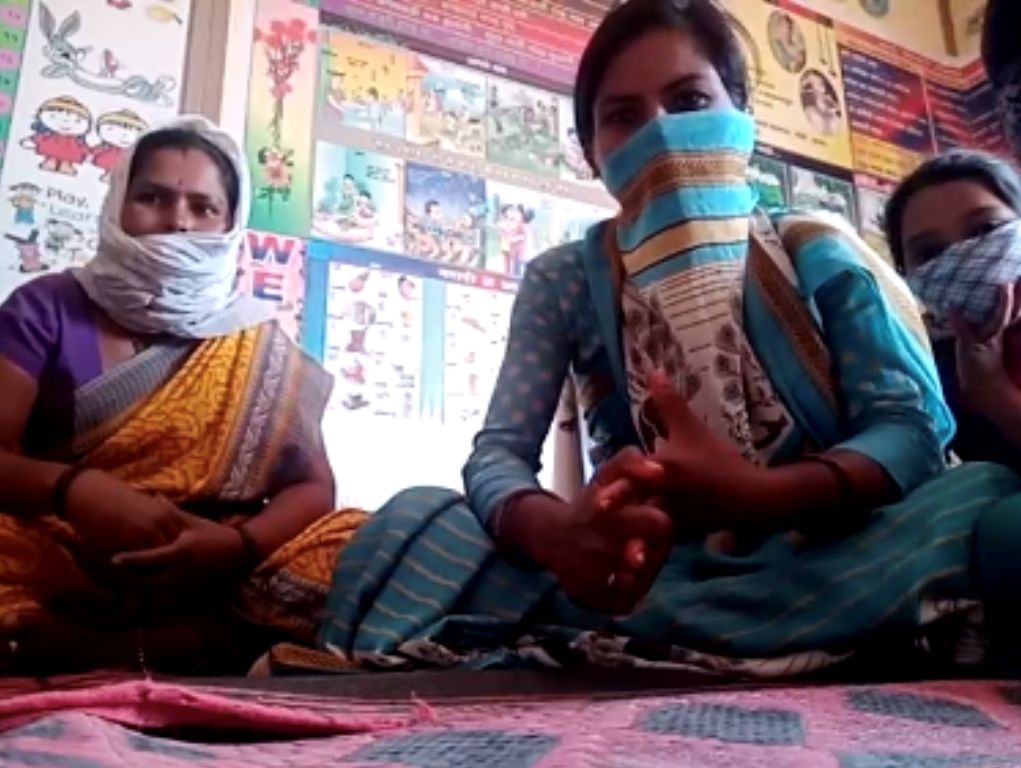
Block Development Officer Pradeep Bhagat said a district-level control room and service centre are set up to help farmers and ensure market linkages.
About 700 migrants and students are yet to return and the ones who arrived have been tested and home-quarantined.
That people who came in their own vehicles or walked long distances are not coming forward for testing is a major challenge.
WOTR team in Jharkhand collected names of those without ration cards and other vulnerable groups to supply essentials.
Chhattisgarh / ‘Workshop helped us understand COVID-19’
“Symptoms have not been observed yet in our village. A suspected person tested negative. 10 people who arrived are home-quarantined,” said Rajen from Champagarh village in Jharkhand.
In Baikunthpur gram panchayat, villagers have self-quarantined and won’t let anyone enter.
“This workshop has helped us understand the basic precautions against COVID-19. We will share them with others,” said a villager from Baikunthpur.
“We are working on land and water treatment under WOTR’s project. After work, we wash our hands regularly,” said Munni Lal from Mansukh.
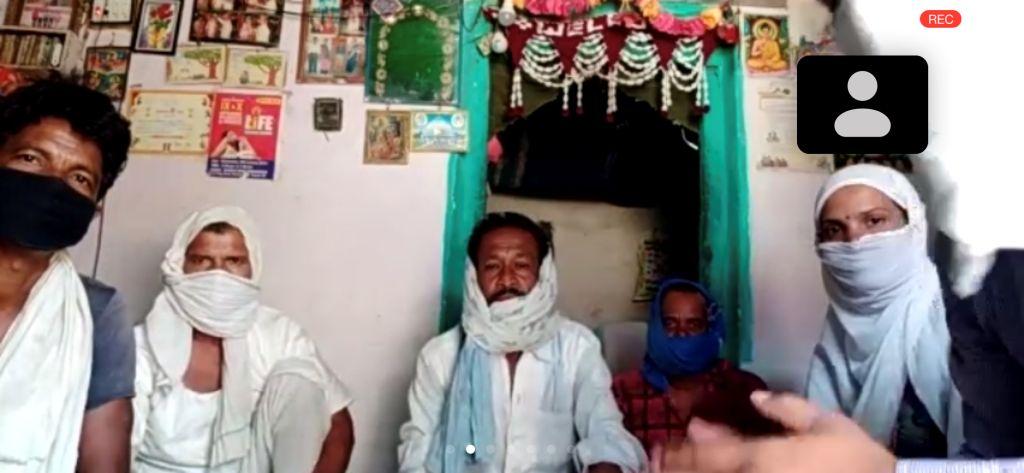
Rajasthan / 10-12-year-olds not following instructions
In the project villages of Udaipur district, meals provided by anganwadi to children and pregnant women are put on hold, due to the lockdown. Four-time meals are now provided just once. Vaccinations have also come to a halt.
Children aged 10-12 years are not following instructions. The villages are far distanced, backward and sanitation is a major concern. Though toilets have been built by the government, no one uses them. Social distancing is practiced by the farmers at work. In the evening, on the contrary, they gather together flouting social distancing norms.
“WOTR gets information beforehand on returning migrants and we share it with gram panchayats. They are admitted at district headquarters for health check-ups. As they arrive, they are quarantined by the Gram Vikas Samiti for the next 20 days. In Dhamoli, we are keeping a record of everyone,” clarified Anoop Mina, Jal sevak, Dhamoli.

Odisha / BDO-WOTR to meet on post-COVID-19 efforts
“Through WOTR-funded watershed activities like stone bunding, check-dam, DBI and farm pond works, we are able to provide livelihood to a few. Now, MNREGA work is also going on,” a VDC member from Odisha said.
Anganwadi staff Ranjita Malik informed that Village Health and Nutrition day is organised every month. “All children aged between 0-5 years and pregnant women are immunised. Pregnant and lactating women, and 0-5-year-old children get dry ration and 12 eggs per month through Integrated Child Development Scheme (ICDS),” she added.
Wasundhara Sevak Santosh Gouda said the villagers are very strict about the returnees as Ganjam district was declared a red zone recently, due to the arrival of migrant labourers from Surat who tested COVID-19 positive.
According to Block Development Officer Shanti Prabha Pradhan, 5,000 migrants arrived in Gunupur, who are now in quarantine. She stressed on post-COVID-19 planning for the returnee migrants and poor villagers to ensure livelihood through MNREGA, Odisha Livelihood Mission (OLM) and Agro Horticulture Programme through Integrated Tribal Development Agency (ITDA). The BDO agreed to organise a joint meeting with WOTR to take post-COVID-19 strategy forward.
Telangana / WOTR to write to district collector
In Telangana, 22 villages participated in the workshop. Around 55 people were in attendance including WOTR staff, Wasundhara sevaks/sevikas, gram panchayat sarpanchs, panchayat secretaries among others.
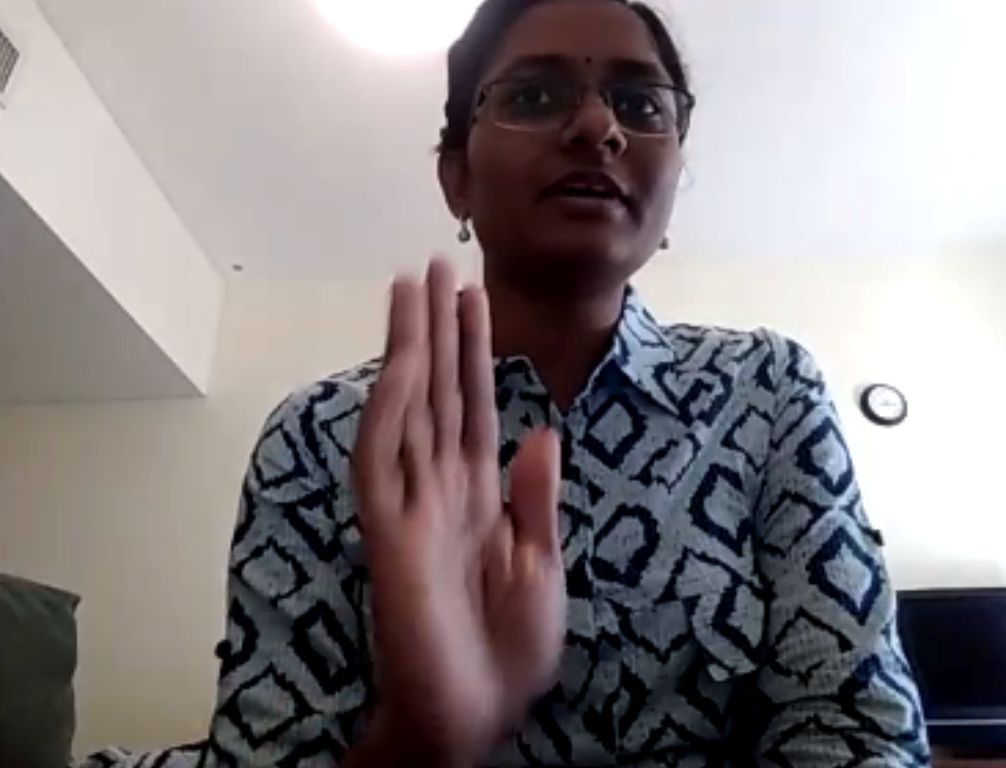
“We have distributed 20,000 masks for the EGS workers to address the issue of non-availability of masks. We will write to the district collector and the DRDO PD about the situation and concerns at the village-level about COVID-19, return of migrant workers and suggest few alternatives such as watershed treatment – farm pond construction, TCB, etc.,” said WOTR’s Jyothirmayee Kandula.
In Telangana, kharif crop input supply hasn’t started in the villages. There is no government guideline in this regard yet. “Going forward we must discuss how the operations can begin,” Jyothrimayee explained.


